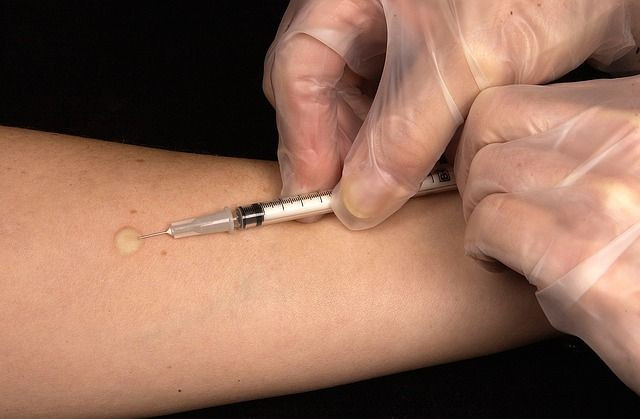Flu Shot Side Effects 2017: Is It Too Late To Get Vaccine, And What To Expect

Though already deep into flu season, experts explain that it's not too late to get the flu shot and protect yourself from the virus. The vaccination remains our best defense against this potentially life-threatening illness, no matter when you get it. Here’s what to expect from a later vaccination.
Never Too Late
The flu shot is usually offered from September to October in order to prepare for the start of flu season in January. However, flu season lasts until about May, which means getting vaccinated even as late as January can still help you avoid the virus for a few months, Kids’ Health reported. In fact, according to The Centers for Disease Control and Prevention (CDC), as long as the flu virus is still active and causing illness, it’s still not too late to be vaccinated. Even if you have already been sick with the virus this year, it’s still recommended that you get vaccinated so as to avoid getting sick again with a different strain of the virus.
Read: Less Than Half Of America Got Flu Vaccine Despite Real Threat Of Serious Complications
According to the CDC, it can take up to two weeks for the antibodies in the flu vaccine to become effective, so it's best to get vaccinated as soon as possible.
Who Should Get It?
The flu vaccine is recommended for everyone over the age of six months old. A few individuals should not receive the flu vaccine for medical reasons, for example, children under six months old, and patients with a severe allergy to one of the components used to develop the vaccine.
Certain individuals are considered “high risk” for the flu and are more strongly urged to get vaccination than the rest of the public. This includes young children, adults over the age of 65, pregnant women, and individuals with a compromised immune system, such as those who are HIV positive.
Side Effects
According to the CDC, the flu vaccine is incredibly safe. If you do experience side effects from the vaccination, these may include: soreness and swelling in the area where the shot was administered, headache, fever, nausea, and muscle aches.
See Also:
The Flu vs. The Flu Shot: Comparing The Dangers Of The Influenza Virus And The Vaccine
Did You Get A 2016 Flu Shot? How To Beat The Influenza Virus This Season
Published by Medicaldaily.com



























